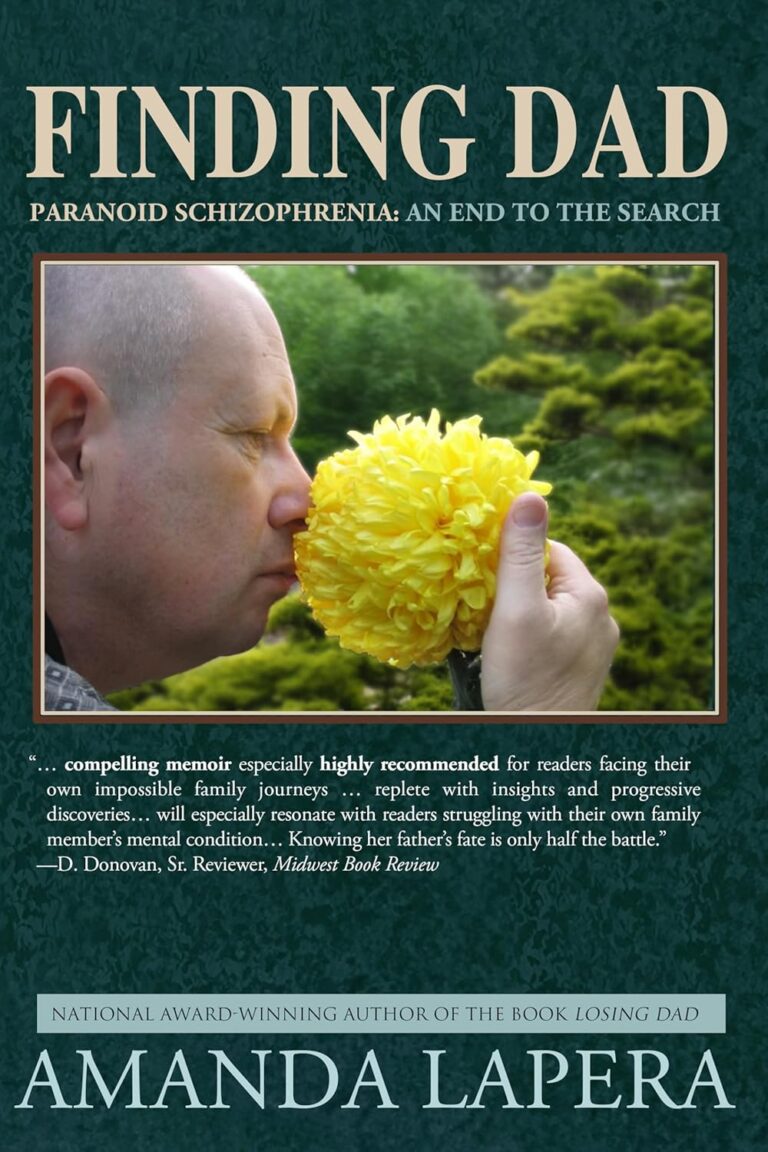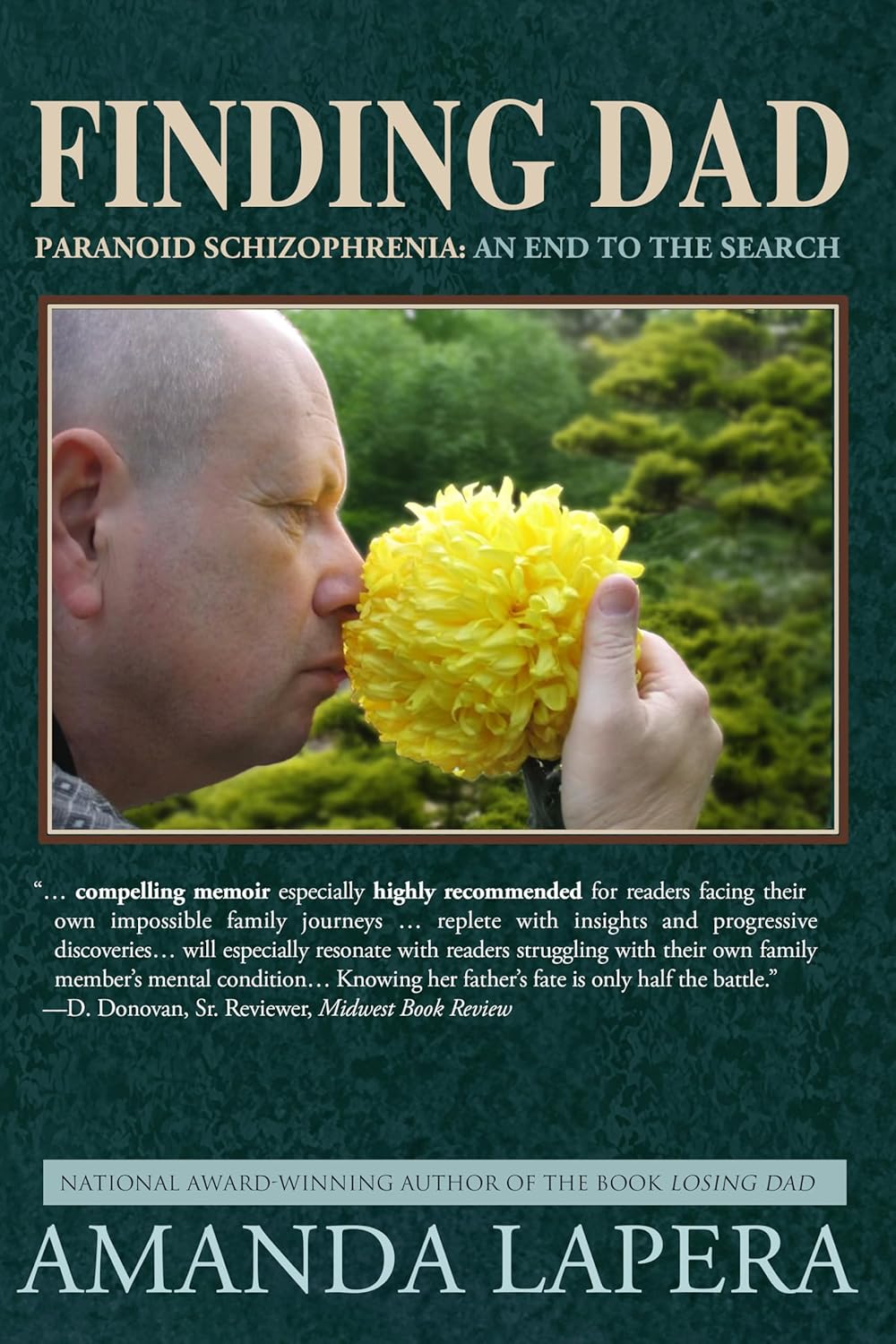Amanda LaPera has already written a memoir about the loss of her father, who experienced an unforeseen mental health event and rapid decline before vanishing for a decade. Through arduous detective work—often stymied by legal protocols that are intended to protect an individual’s privacy but simultaneously make it impossible to care for someone who refuses to accept that they’re ill—Amanda is able to locate her father at a nursing home in Chicago. However, this reunion only initiates a new phase of struggle: with her father’s condition slowly worsening and the system still stacked against her, LaPera must learn anew how to love and care for him.
FINDING DAD, PARANOID SCHIZOPHRENIA: An End to the Search is very clear about its intentions. LaPera—an advocate and activist in mental health spaces, serving ten years as a Director for the National Alliance for Mental Illness, Orange County Affiliate—wants to draw attention to the personal and institutional challenges that face both people with mental illness and their support networks. The book is simultaneously an act of solidarity with others in those support networks. This is LaPera’s second book on the subject, and in more than one instance she uses it to advance her agenda: sometimes, she’s at an author event offering a hug to a fellow caretaker of a mentally-ill family member; at others, she uses her book to convince a reluctant healthcare professional or banker to help her. This makes for a complex, sometimes tense relationship between the narrative and the book. LaPera is not shy about her frustrations with the current legal framework around mental illness and healthcare, pointing out how it’s unfair that someone has to literally write a book just for the chance to care for their own family member. The majority of people in her situation do not have the same resources (and therefore the same opportunities) to advocate for themselves and their loved ones.
These hard truths make for a challenging reading experience. The text is brutally successful at conveying both the complexity of the existing systems and the emotional deterioration of even the most dedicated caretaker. In more than one instance, healthcare professionals forget or deny key medical information despite LaPera’s repeated insistence. LaPera is also refused information by a medical or financial institution due to Kafkaesque relationships between documents, permissions, and protocols. She knows that these systems are intended to protect the ill (and she even harbors some fear that someone may have taken advantage of her father financially during his lost decade)—but she’s also forthright about her exasperation, constantly being rebuffed despite the legitimacy of her claims to her father’s care. Her blunt narration of her own emotional state could describe the reading experience, too: “Was I relieved? Frustrated? Angry? Happy? Intellectually, I was all of those things, but the emotions eluded me. I wasn’t sure what I felt, other than numb.”
This is the central challenge of the text: there is comfort in solidarity and value in informing others to elicit sympathy and action, but degenerative disease only progresses in one direction. Sometimes comfort and relief are the only possible outcomes of a turbulent emotional journey. The prose itself is straightforward and businesslike, even in its descriptions of emotional states, and though this avoids the easy trap of trying to elevate or beautify these events, it also provides little relief from the drudgery of the journey.
Ultimately, FINDING DAD is not about literary merit. It is about accessible, painful, and unrelenting humanity.
Amanda LaPera’s FINDING DAD, PARANOID SCHIZOPHRENIA: An End to the Search is a challenging read, but it’s hard not to be struck by its immense humanity.
~Dan Accardi for IndieReader


